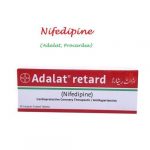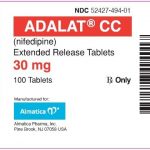Contents
- 1 Roseola
- 1.0.1 What causes roseola?
- 1.0.2 What are the symptoms of roseola?
- 1.0.3 What are the risk factors for roseola?
- 1.0.4 How is roseola transmitted?
- 1.0.5 What doctors treat roseola?
- 1.0.6 How is roseola diagnosed?
- 1.0.7 How is the fever of roseola treated?
- 1.0.8 Are there home remedies for roseola?
- 1.0.9 What should be done if a child with roseola has a seizure?
- 1.0.10 Can a seizure be caused by fever?
- 1.0.11 Are fever seizures dangerous?
- 1.0.12 How high can the fever get with roseola?
- 1.0.13 Is there a rash with roseola?
- 1.0.14 What is the most remarkable characteristic of roseola?
- 1.0.15 How long does roseola last?
- 1.0.16 Are there complications with roseola?
- 1.0.17 Should a child with roseola see a doctor?
- 1.0.18 Can a child with roseola go to daycare?
- 1.0.19 Is there a vaccine for roseola?
- 1.0.20 Is it possible to prevent roseola?
- 1.0.21 What is the prognosis for a child with roseola?
Roseola
Roseola is also known as roseola infantum or roseola infantilis. The rash appears suddenly after the fever, so it is commonly called exanthem subitum.
Roseola was once called "sixth disease" because it was the sixth disease children typically got and lasted about six days. However, this name is mostly forgotten.
What causes roseola?
Roseola is primarily caused by human herpesvirus 6 (HHV-6) and occasionally by human herpesvirus 7 (HHV-7).
What are the symptoms of roseola?
The symptoms of HHV-6 or HHV-7 infection vary depending on the patient’s age.
- Infants and toddlers typically develop a sudden high fever (103-104 degrees) that lasts 3-5 days.
- The child may also experience irritability, swollen glands in the neck, runny nose, puffy eyelids, and mild diarrhea.
- The rash appears within 12-24 hours after the fever breaks.
- Older children may have several days of high fever, runny nose, and/or diarrhea, but they less commonly develop a rash.
What are the risk factors for roseola?
Most people infected with HHV-6 or HHV-7 have no symptoms. Only a few individuals develop noticeable symptoms, and they usually recover without complications. However, individuals with weakened immune systems, such as newborn infants, chemotherapy patients, and those with HIV-AIDS, may experience a more severe form of the disease.
How is roseola transmitted?
Roseola spreads from person to person through oral secretions.
- The incubation period between exposure and symptoms is nine to ten days.
- HHV-6 and HHV-7 only infect humans and are not affected by seasonal variations.
IMAGES
What doctors treat roseola?
Pediatricians and family practitioners can diagnose and manage roseola. Infectious disease specialists are rarely necessary.
How is roseola diagnosed?
In most cases, the characteristic pattern of sudden fever onset and rash is enough for a diagnosis without lab tests. However, for atypical cases, complications, or patients with immune deficiencies, blood tests can help confirm the diagnosis.
How is the fever of roseola treated?
If the fever is not causing discomfort, it does not need treatment. Acetaminophen or ibuprofen can be used to lower the fever, but there is no need to wake a sleeping child to treat the fever. Aspirin should never be given to children or adolescents for fever.
A child with a fever should be kept comfortable and not overdressed. Bathing with tepid water can help reduce fever. Alcohol should not be used for sponging as it can be inhaled and cause harm.
Are there home remedies for roseola?
Medications like acetaminophen or ibuprofen can help reduce fever and discomfort. A cool bath can also be soothing. The rash of roseola does not require treatment as it is short-lived, symptomless, and resolves on its own.
What should be done if a child with roseola has a seizure?
To help a child having a seizure, gently lay them on the floor, loosen any tight clothing around the neck, and clear the area of any sharp objects. Turn the child on their side to allow saliva to flow from the mouth. Do not put anything in the child’s mouth and wait for the seizure to end.
Febrile seizures associated with roseola usually last less than five minutes and do not cause long-term harm. However, it is important to contact a healthcare professional after a seizure to determine if further examination is necessary.
Can a seizure be caused by fever?
Yes, a sudden rise in temperature can trigger a seizure, known as a febrile seizure. Febrile seizures are common in children between 18 months and 3 years old and occur in 5% to 35% of children with roseola.
Are fever seizures dangerous?
Febrile seizures may appear frightening but are generally harmless. They are not associated with long-term effects or brain damage. Anticonvulsant medications are rarely prescribed for febrile seizures.
How high can the fever get with roseola?
The fever can reach high temperatures, with an average of 103.5 F (39.7 C) and occasionally reaching 106 F (41.2 C).
Is there a rash with roseola?
Yes, a rash appears after the fever subsides. It is mainly found on the neck, torso, arms, and legs. The rash consists of small raised dots or a flat rash that temporarily blanches when pressed. It is not itchy, painful, or contagious, and it disappears within one to two days.
What is the most remarkable characteristic of roseola?
Despite the high fever, the child appears well and unaffected.
How long does roseola last?
The fever lasts 3-5 days, and the rash lasts one to two days. HHV-6 immunity usually lasts a lifetime.
Are there complications with roseola?
Complications are rare except in individuals with weakened immune systems. Most people with healthy immune systems gain lifelong immunity to HHV-6 or HHV-7.
Should a child with roseola see a doctor?
It is advisable to consult a healthcare professional when a child has both a fever and a rash. The child should not return to childcare until evaluated.
Can a child with roseola go to daycare?
A child with only the roseola rash (without fever for 24 hours) can usually return to daycare.
By clicking Submit, I agree to the MedicineNet’s Terms & Conditions & Privacy Policy and understand that I may opt out of MedicineNet’s subscriptions at any time.
Is there a vaccine for roseola?
Currently, there is no vaccine for roseola. Due to its generally mild nature and low rate of complications, the development of a new vaccine may not be cost-effective.
Is it possible to prevent roseola?
The primary mode of transmission is through respiratory droplets. Therefore, frequent hand-washing and avoiding close contact with acutely ill individuals are the best precautions. Daycares and preschools should follow standard hygiene practices and regularly clean shared toys and articles.
What is the prognosis for a child with roseola?
Except for individuals with compromised immune systems, the prognosis for a child with roseola is excellent, and no long-term effects are expected.


